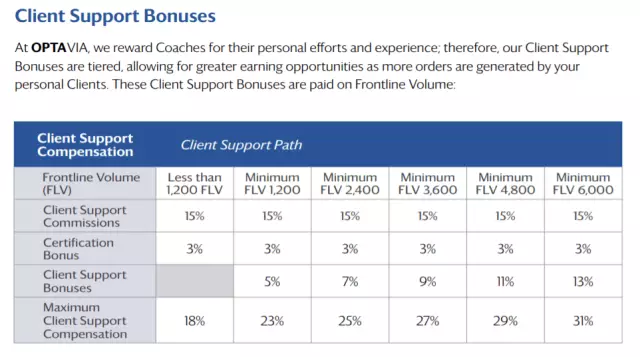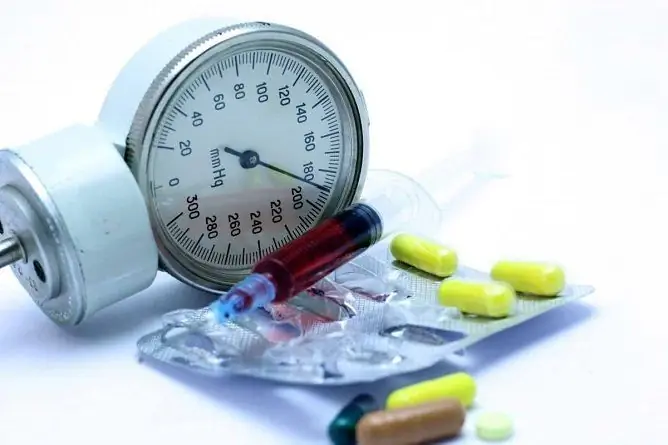- Author Rachel Wainwright wainwright@abchealthonline.com.
- Public 2023-12-15 07:39.
- Last modified 2025-11-02 20:14.
Low calorie diet
A low-calorie diet is used not only at home, but also in hospitals to reduce weight in obese patients. Its main principle is that the number of calories in the daily diet should not exceed a specific value. It has been determined that the average daily rate of energy expenditure for women is 2000 kcal. If you reduce the calorie content of the daily diet, the body will be forced to use fat reserves to generate energy. It is considered optimal to reduce the daily calorie content by 300 kcal. A woman who has regular but moderate physical activity should set the calorie intake of 1700 kcal per day, but if physical activity is minimal, this figure can be reduced to 1500 or even 1200 kcal.
Some people who lose weight choose an even stricter restriction, determining for themselves the daily calorie content in the range of 600-800 kcal. Experts warn that this is dangerous to health, and do not recommend setting the daily caloric intake below 1200 kcal.
Low calorie diet rules:
- meals should be fractional, the number of meals should be 5-6 times a day;
- last meal no later than 19.00;
- excludes or minimizes salt intake;
- the menu should have a sufficient amount of protein foods and no more than 100 g of carbohydrate products per day;
- fat intake is minimized, but not excluded;
- thermal processing of products is carried out by means of cooking, stewing, baking or steam;
- every day you need to drink 2 liters of clean non-carbonated water.

Benefits of a low-calorie diet
A low-calorie diet will help you get rid of 2-5 kg per week.
The advantage of the diet is the variety of permitted products, which allows you to compose a daily menu according to your preferences.
If the diet is drawn up correctly, taking into account all the recommendations, then the diet is well tolerated, the normalization of metabolism and a decrease in weight lead to a healthier body and an improvement in well-being.
Disadvantages and contraindications of a low calorie diet
Sometimes the diet is accompanied by a breakdown, fatigue, headache. If the unpleasant symptoms do not disappear within two days (while the body is adapting to new conditions), it is necessary to adjust the daily calorie intake by slightly increasing it, since such signs indicate that it is excessively reduced. Too much reduction in daily calorie intake should be avoided - although the weight will go away more noticeably, the risk of breakdown is extremely high, and upon completion of the diet, the hard-lost pounds will quickly return.
This system has no contraindications, since its diet varies in accordance with individual indications. People with chronic diseases should compose the menu taking into account the recommendations of the attending physician.
What foods are allowed?
- chicken, turkey, rabbit, veal, beef, lean lamb and pork.
- fish and seafood (except prohibited ones).
- eggs.
- milk, fermented milk products, low-fat cheese.
- wheat and rye bread made from wholemeal flour, protein-bran and protein-wheat bread.
- porridge on the water: oatmeal, buckwheat, pearl barley, barley, millet.
- all types of cabbage, radishes, zucchini, tomatoes, cucumbers, turnips, pumpkin, lettuce, green peas, leafy greens, limitedly - potatoes, carrots, beets.
- berries and fruits of sweet and sour varieties.
- vegetable oil for salad dressing.
- vinegar, lemon juice, homemade tomato and mushroom sauce.
- green and black tea, black and milk coffee, freshly squeezed juices from vegetables, unsweetened fruits and berries.
What foods are prohibited?
- Fatty meats, duck, goose, ham, smoked and boiled sausages, canned meat.
- Canned fish in oil, caviar, salted and smoked fish.
- High fat dairy products, flavored yoghurts.
- Pickled and pickled vegetables (excluding sauerkraut).
- Grapes, bananas, dates, figs, raisins.
- Sugar, honey, confectionery.
- Puff pastry and pastry products.
- Spicy and fatty sauces, mayonnaise.
- Spices.
- Sweet juices, especially grape, cocoa, alcoholic beverages.
Low calorie diet menu
Seven-day low-calorie diet menu:
First breakfast: 200 g of oatmeal, medium apple, green tea.
Second breakfast: 150 ml of yogurt.
Lunch: 200 g of vegetable soup, 200 g of steamed fish.
Afternoon snack: 200 ml of tomato juice.
Dinner: 150 g of boiled beef, 150 g of vegetable salad.
First breakfast: boiled egg, 2 loaves of bread, tea.
Second breakfast: medium apple.
Lunch: 100 g of lentil soup, 100 g of boiled meat.
Afternoon snack: 100 g of cottage cheese.
Dinner: 150 g of baked fish, 200 g of vegetable salad.
First breakfast: 200 g of buckwheat porridge, tea with lemon.
Second breakfast: 200 ml of kefir, whole grain bread.
Lunch: 250 g of lean borscht, 100 g of boiled veal, 100 g of boiled beet salad, seasoned with a teaspoon of olive oil.
Afternoon snack: medium grapefruit.
Dinner: 150 g of steamed fish, potatoes.
First breakfast: boiled egg, half a grapefruit, tea.
Second breakfast: 100 g of cottage cheese.
Lunch: 200 g of vegetable soup, 150 g of steamed chicken fillet, 100 g of vegetable salad.
Dinner: 70 g of stewed vegetables, 200 ml of kefir.
First breakfast: 200 g of millet porridge, 200 ml of orange juice.
Second breakfast: medium apple or peach.
Lunch: 200 g of boiled veal, 150 g of cabbage salad, black tea.
Afternoon snack: 100 g of dried fruits.
Dinner: 100 g of cottage cheese, an orange or an apple.
First breakfast: 200 g of oatmeal, medium apple, green tea.
Second breakfast: 150 ml of yogurt.
Lunch: 200 g of vegetable soup, 200 g of steamed fish.
Afternoon snack: 200 ml of tomato juice.
Dinner: 150 g of boiled beef, 150 g of vegetable salad.
First breakfast: boiled egg, 2 loaves of bread, tea.
Second breakfast: medium apple.
Lunch: 100 g of lentil soup, 100 g of boiled meat.
Afternoon snack: 100 g of cottage cheese.
Dinner: 150 g of baked fish, 150 g of vegetable salad.
Useful Tips
Tip 1. Instead of boiled eggs, you can cook a steam omelet.
Advice 2. The diet will be more effective and it will be easier to follow it if you perform a set of physical exercises every day, which you can choose to your taste. At the same time, excessive physical activity should be avoided.
| Diet characteristic | final grade |
| Duration: 7 days |
3.5 out of 5 The diet is based on a slight decrease in daily calorie intake and a fractional diet. Subject to all recommendations, the system is effective and safe, it is used in hospitals. |
| Recommended frequency: not determined | |
| Weight loss rate: | |
| Safety: | |
| Variety of products: |
YouTube video related to the article:
Found a mistake in the text? Select it and press Ctrl + Enter.






